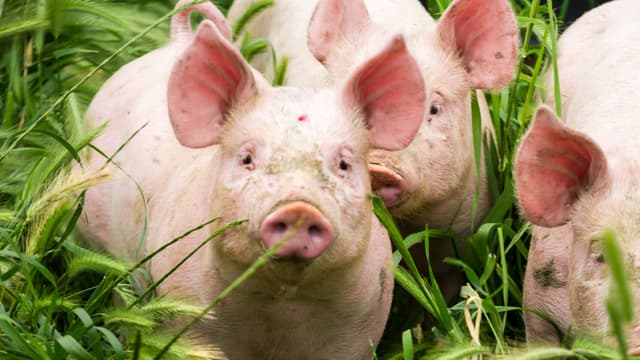Bones processing
Bones are used as the base material for producing animal fats and gelatine for human consumption, or simply technical fat and meat and bone meal for animal feed. Alfa Laval Centribone systems provide a particularly versatile and effective way to process raw animal bones, via a continuous wet rendering process that uses up to 30% less energy than dry rendering.
Alfa Laval Centribone plants provide the most versatile and efficient way to process meat by-products. The continuous wet rendering process can handle any raw material, from fatty tissues to the best gelatine bone raw materials.
The low-temperature process is totally enclosed, making it especially suitable for processing edible products, ingredients for pet food or best quality technical fat for fuel purposes.
State-of-the-art Centribone capabilities enable processing companies to move into more profitable segments in the market for end products. To obtain the highest quality end products, the thermal impact while processing must be kept as low as possible. The rapid, accurate heating and processing in the Centribone system result in production of high-quality fats, with outstanding colour, no increase in free fatty acids (FFAs) and minimal oxidation impact.
Centribone technology is specially designed for processing products aimed at pet food or human consumption, as the short processing time of the Centribone system retains the nutritional value and functionality of the protein.
Centribone’s continuous processing makes it easy to maintain uniform quality. Producers benefit in terms of ease of operation – and customers appreciate the quality difference.
Flexible production planning
In reducing start-up and shutdown times, Centribone not only makes production more flexible and more efficient, but also allows more time in any production schedule. In a Centribone plant, for example, processing different raw materials such as fatty tissues and bone is possible in successive cycles, if required. Whether you are a large-scale operator or a small one, your productivity is improved.
Short-time heating process
The ground material is fed to the inlet of the Centribone raw material heater, and heating takes place by the injection of live steam directly into the product. This injection is done through specially optimized nozzles, and the result is the fastest possible transfer of energy to the product, resulting in the fastest heating. The product is moved through the heater’s dual heating zones by a variable-speed conveyor. The holding time in the RMH heater can thus be kept to as little as five minutes.
The careful dual temperature and speed control ensures rapid heating to 65°C (150°F) in order to eliminate enzymatic and bacteriological product breakdown. This is followed by a controlled holding time, where the product is heated from 65 to 90°C (150 to 195°F). The actual temperature and time requirements depend on the particular raw material being processed at any given time.
Low energy consumption
With Centribone, energy consumption is reduced by as much as 30%, compared to dry rendering methods. This is because the decanter centrifuge and separator remove most of the process water mechanically, allowing for the addition of highly efficient evaporation systems to remove the majority of the water. And, unlike conventional processes, Centribone becomes more economical to use as the water content of the raw material increases.
Flexible throughputs and layouts
Centribone plants can process a variety of raw materials at rated throughputs ranging from 3 and upwards. Because of its logical, compact design, a Centribone plant only requires a minimum space of. It can therefore be fitted easily into existing buildings.
Additional equipment
Centribone systems can, of course, can be supplied as a complete plant including:
- Double decanter centrifuge system reducing residue fat in product by approximately 50%
- AlfaVap evaporation plants, using waste heat, thermal vapour recompression or mechanical vapour recompression
- A range of appropriate drying systems
- Gel-bone sorting
- Meal cooling with Alfa Laval Kathabar humidity control protecting against bacterial post-contamination of meal
- Milling system
Downloads
Contact"
Alfa Laval Singapore Pte. Ltd.
11 North Buona Vista Drive, The Metropolis Tower 2, #10-07 & #10-08
138589 Singapore
Singapore

